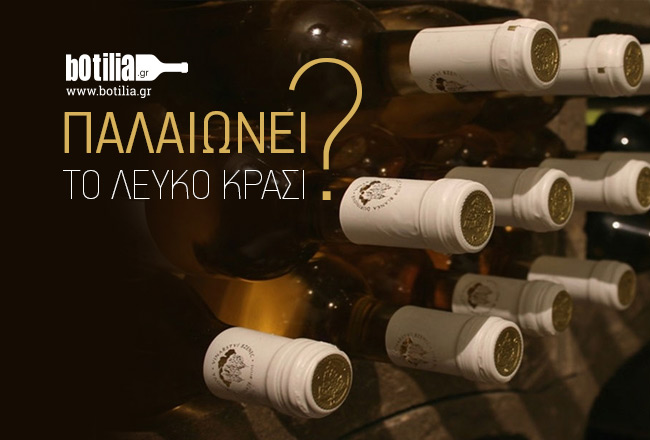CAN WHITE WINES AGE?

It is now known that red wines get better with age. Okay not all reds but most of them. But what about whites? Can they age well, too?? And if so, which ones?
First I will tell you, that yes, whites have ageing potential! Secondly, no, not every white wine has the ability to age and evolve overtime. What are the requirements needed for ageing potential?
1. Acidity
Think about 2 white varieties that age well: Assyrtiko and Riesling. Both have sharp acidity and their evolution over time is magical. The reason is that the acidity "drops" with time and so a wine with low acidity will soon become flat and boring, while one with high acidity has more way ahead. In addition, with ageing, the fruit gets ripper but the high acidity maintains balance and so the wine does not become flabby.
2. Tannins
White varieties that ferment with skin contact for some time usually give wines with a mild tannic feeling which helps in structure and evolution over time. Try a premium Assyrtiko from Santorini and you will get what i mean. On the other hand, aging in oak barrels gives some tannins to the wine. White oak aged wines usually have a aging potential of 3-5 years, depending of course on the wine. A great example is Deka X White, which, although it is 2013 vintage, has not lost its shape, on the contrary, it has evolved beautifully and… intricately.
3. Residual sugars
Sugars in combination with acidity act as a natural "preservative" for wine and help it to stand the test of time. If we are talking about a Moschofilero we can wait 3-4 years, while if we are talking about a German Riesling we can easily forget it for 10 years.
4. Alcohol
Alcohol evolves into… vinegar over time, so we prefer to age wines with less than 13.5% alcohol. Of course, there are exceptions here as well, such as the famous Nychteri of Santorini, which often hit 15 alcoholic degrees.
These were the general rules, but there are some specific varieties that are flattered by time. So, apart from Chardonnay, Riesling and Assyrtiko, our humble Savvatiano can age surprisingly good, even if the unoaked versions. In addition, the Kefalonian Robola has the background for long ageing, with its sharp acidity. Also, some Malagouzias age gratefully and their development is reminiscent of Viognier, just do not wait too long, 2-3 years are enough.
Bonus Tip 1: Chenin Blanc, whether dry (8-10 years) from Africa, or moelleux (20+) from the Loire, this variety has an excellent base for ageing and shows a really beautiful evolution over time.
Bonus Tip 2: Gruner Veltliner from Austria has easily 5-10 years in its pocket and will reward you with aromas of roasted cabbage, white pepper, honey, dill and ginger. Perfect for food and wine pairings.
Eva Markaki
Wine Geek


